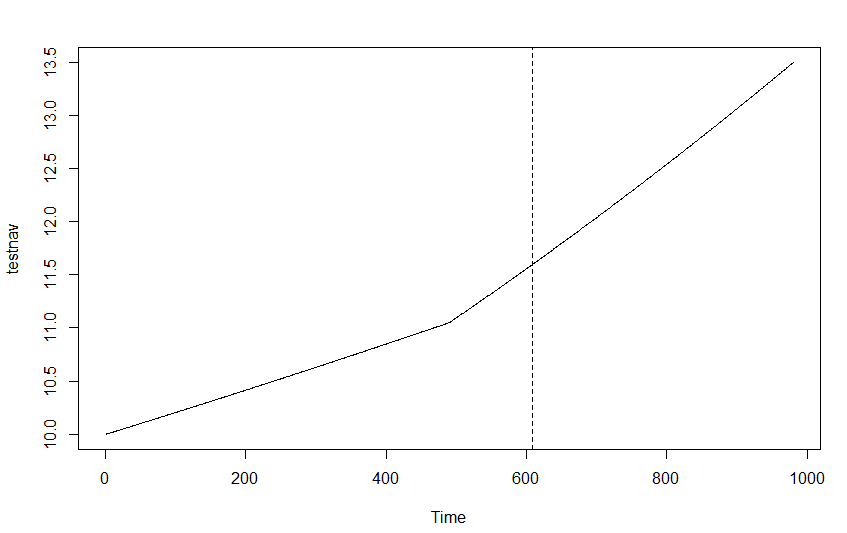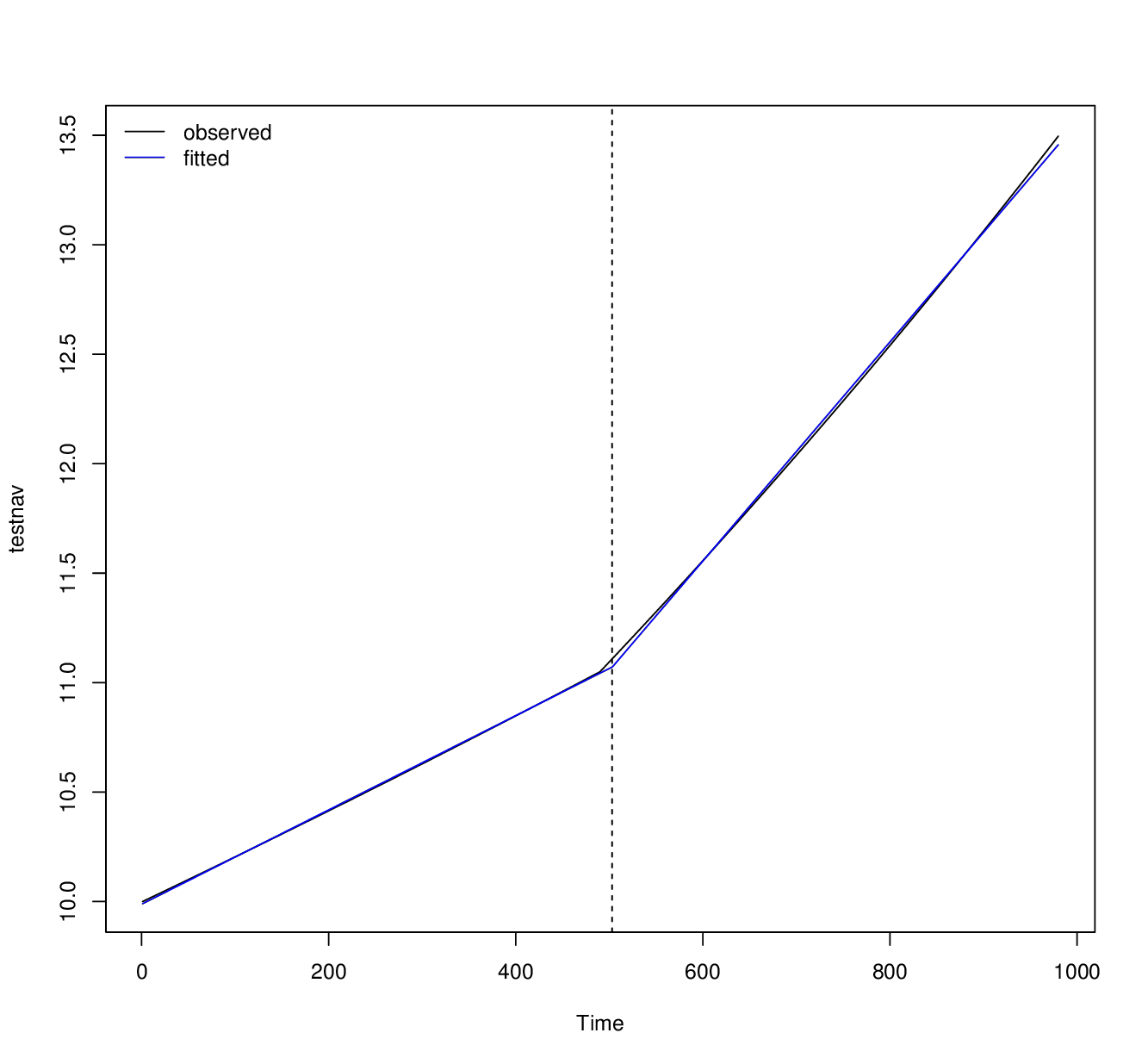I'm trying to detect structural breaks in time series of NAV using 'strucchange' in R.
I have created the NAV by using a simple annualized return of 5% and 10% (no random term). However, after using 'breakpoints' test in R the result is that the break point is not on the point I have changed return from 5% to 10%.
My code is like:
library(readr)
test <- read_csv("D:/Temp/Test/nav.csv")
View(test)
library(strucchange)
testnav = ts(test$NAV)
bp.test = breakpoints(testnav ~ 1)
plot(testnav)
lines(bp.test, breaks = 1)
The data I use is Here
Did I do something wrong? Why isn't it break on time ~500 where the return changed from 5% to 10%?


